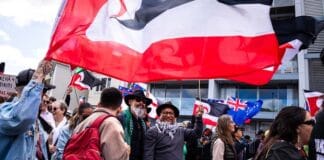WHILE THE restoration of the RDA would force some changes to the Northern Territory welfare quarantine legislation, it is likely that these would be modelled on the Queensland intervention legislation.
This uses “behavioural triggers” to bring people under the Family Responsibilities Commission (FRC), a government body which reviews and administers income management.
The FRC is the result of experimental policy aimed at achieving welfare and social reform by tackling welfare dependency and dysfunctional behaviours, including substance abuse and child neglect, developed in partnership between the Cape York Institute for Policy and Leadership director Noel Pearson and the Queensland government.
Since July 1 this year, Aboriginal people in the communities of Hopevale, Coen, Aurukun and Mossman Gorge in far North Queensland face being notified to the commission for a raft of “socially irresponsible” behaviours, such as their child having three or more school absences in a year, being suspected of child abuse, falling into rent arrears or violating any housing tenancy agreement, or being convicted of any offence.
Penalties include having up to 100 per cent of their Centrelink income quarantined for a period of up to 12 months. The commission is also empowered to refer people to remedial services such as drug and alcohol counselling or parenting programs.
The FRC’s behavioural triggers are set so that they are extremely easy to fall foul of. In the four Queensland Aboriginal communities, as well as most Aboriginal communities in the Northern Territory, where little adequate school, health, or housing infrastructure or support services exist it would not be long before such an income management system would apply to most residents, creating the same kinds of hardship, humiliation and increased racism as has been witnessed in the current intervention.
By Lauren Mellor





